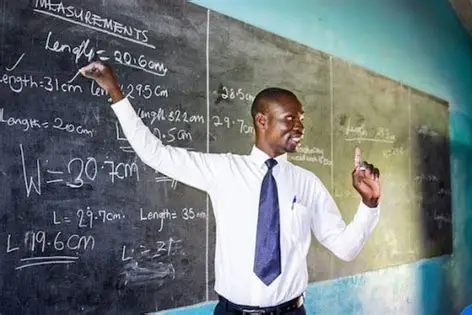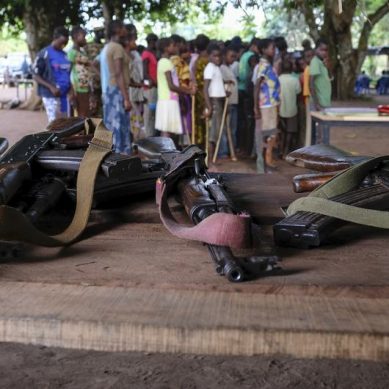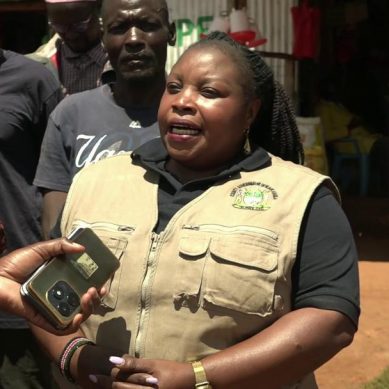
By incongruence I mean a mismatch between two contending parties with regard to perception, understanding, concern, action, interests, perspectives, interpretation, needs, goals, etc.
In the case of the knowledge workers of Uganda (teachers, lecturers and professors) and the National Resistance Movement (NRM) government since 1986, there has been a mismatch between the two contending entities regarding resolution of conflicts in the education system in general and the universities and schools in particular.
The reason is that while the knowledge workers have preferred negotiation the government has resorted to ignoring them and applying the command-obey approach to solving the labour disputes of particular interest to the knowledge workers.
Right now, knowledge workers in the public universities and schools are not happy that their value to society has been eroded by the disrespectful stances of the government towards them in terms of salaries, benefits and the government determination to apply discrimination between the artists, humanists and social scientists on the one hand and natural scientists on the other.
The government has shown that it will do everything possible to value natural scientists far more than the other knowledge workers in terms of salaries, benefits, etc.
Knowledge workers or knowledge labourers work with brain, not hands. When there is a labour dispute between such workers and their employers (private or government) it is more sensible to negotiate with them rather than ignore or coerce them with threats of dismissal. The threats will be recorded in their heads and interpreted as high-handedness, arrogance and disrespect for their profession or fraternity by people in power who were products of their commitment to the teaching profession.
They may be compelled to go back to the classroom and the lecture theatre but they will unwillingly go back physically but leave their minds outside the class room or lecture theatre. Students and pupils will continue to suffer like before when the knowledge workers withdrew their labour.
Therefore, not listening to the knowledge workers and/or forcing them to appear physically in the classrooms and/or lecture theatres will harm the learners further and undermine the nation in diverse ways.
Knowledge workers work with brains, not hands. Antagonising them by devaluing them or forcing them to produce without meeting their demands will disorganize further the already disorganised education sector, create a body of discontented knowledge workers, harm the learners across the education spectrum and enhance the uncertainty of a nation that seems to manifest as if it is still in the 20th century.
Overall the incongruence between knowledge workers and the NRM government highlights the need to de-emphasise power and emphasise effective communication, negotiation and conflict resolution mechanisms in the education system to protect the rights of the knowledge workers, students, pupils and the parents hard-hit by poverty and unsure of what the future holds for their children.
It also calls for a rethinking of how the national budget is spent and what is emphasized in the budget.
Currently, unfortunately, the emphasis seems to be on the army, politics and power retention. However, the command-obey approach to resolving conflicts in education has no place in the 21st Century – the sentry of knowledge and information.
For God and my country.
- A Tell report / By Oweyegha-Afunaduula / Environmental Historian and Conservationist Centre for Critical Thinking and Alternative Analysis (CCTAA), Seeta, Mukono, Uganda.
About the Centre for Critical Thinking and Alternative Analysis (CCTAA)
The CCTAA was innovated by Hyuha Mukwanason, Oweyegha-Afunaduula and Mahir Balunywa in 2019 to the rising decline in the capacity of graduates in Uganda and beyond to engage in critical thinking and reason coherently besides excellence in academics and academic production. The three scholars were convinced that after academic achievement the world outside the ivory tower needed graduates that can think critically and reason coherently towards making society and the environment better for human gratification. They reasoned between themselves and reached the conclusion that disciplinary education did not only narrow the thinking and reasoning of those exposed to it but restricted the opportunity to excel in critical thinking and reasoning, which are the ultimate aim of education. They were dismayed by the truism that the products of disciplinary education find it difficult to tick outside the boundaries of their disciplines; that when they provide solutions to problems that do not recognise the artificial boundaries between knowledges, their solutions become the new problems. They decided that the answer was a new and different medium of learning and innovating, which they characterised as The Centre for Critical Thinking and Alternative Analysis (CCTAA).







